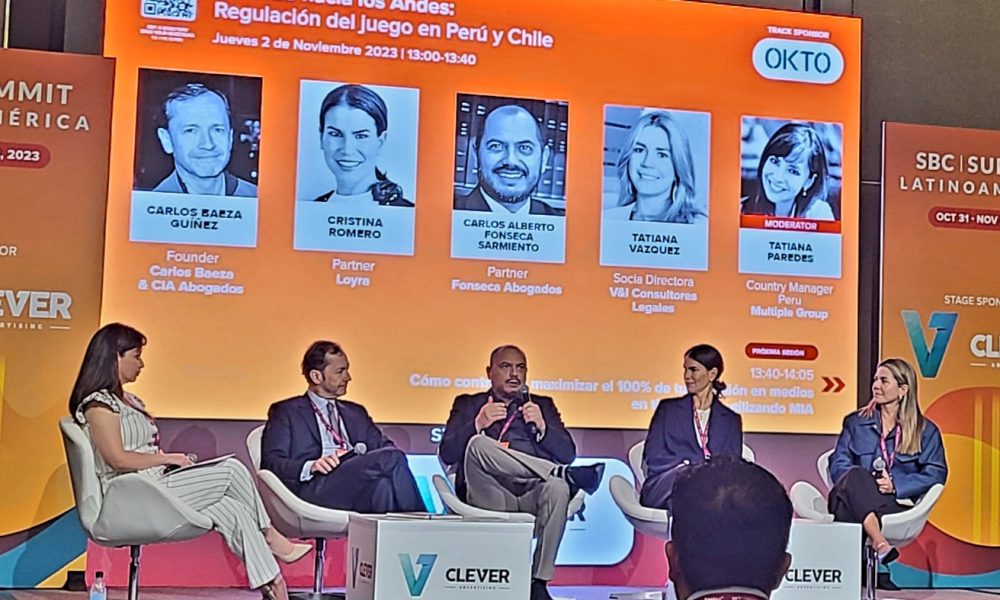A common theme throughout the recently concluded SBC Summit Latinoamérica was, how on a continent where most nations speak the same language, wildly different regulatory models from country to country often cause frustrations for operators trying to serve all of Latin America.
Nowhere was that more stark than during Thursday’s “Eyes on the Andes: Gaming Regulation in Peru and Chile” at Seminole Hard Rock Hotel & Casino in Hollywood, Florida, which detailed the vast differences in regulation among countries that border the same (Pacific) ocean.
In June, Peru enacted new gaming regulations that call for a 12 percent tax rate, including on foreign operators, and established other protocols, such as know-your-customer protections, a requirement that operators use Peruvian domains, and rules on sponsorship of sports teams.
“Gaming taxes in Peru are quite reasonable and I’ve always advocated that we regulate by taxes. The state is interested in collecting taxes, but we need to be reasonable when collecting taxes,” said Carlos Alberto Fonseca Sarmiento, partner with Fonseca Abogados and a Peruvian regulator for eight years. He noted that the relatively low tax rate is important. “The best way to protect players is through free competition.”
Tatiana Vazquez, socia directora of V&I Consultores Legales and an expert on regulation in Colombia, which is routinely praised for its regulatory model, agreed. “Peru is a great example of regulation. Peru opted for some of the regulations we had in Colombia and we’re the pioneer in Latin American regulation.” But Vazquez continued, “What’s happening in Chili is heartbreaking.”
Online gaming is illegal in Chile, though the nation has been making progress this year in establishing a regulatory framework for online operators. Unlike Peru and Colombia, where tax rates are set low to encourage competition, Chile is eyeing a 20 percent tax rate, plus a VAT. In a further blow to established operators, the nation’s Supreme Court in September ruled that any company offering online games to Chileans will have to stop for 12 months before obtaining a license.
“This is absurd and ridiculous,” said Carlos Baeza Guíñez, founder of Carlos Baeza y Cia. Abogados, who has been part of the effort to push for online regulations in Chile. “Our legislators should think that that tax rate is disproportionate and second highest in the world. And I hope we can make our lawmakers understand that this is out of line. A larger tax burden will not increase tax collection. We’re trying to gather together all of the necessary arguments that this is very bad news for Chile and we are very far away from other international standards. We hope to make them understand that.”
Cristina Romero de Alba, a partner at LOYRA, said nations need to understand that regulation is just the start.
“What happens when the regulation starts? What is the enforcement?” she said. “Market forces will work with free competition, but the truth is that we’re in the world of the internet and illegal operators exist. There are two groups of operators, international ones that follow standards and another group that takes more than 50 percent of market share and doesn’t care about regulations.”



